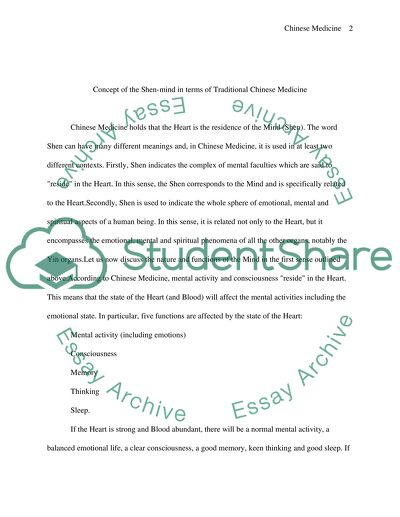Cite this document
(“Concept of the Shen-mind in Traditional Chinese Medicine Essay”, n.d.)
Retrieved from https://studentshare.org/health-sciences-medicine/1500304-traditional-chinese-medicine-essay
Retrieved from https://studentshare.org/health-sciences-medicine/1500304-traditional-chinese-medicine-essay
(Concept of the Shen-Mind in Traditional Chinese Medicine Essay)
https://studentshare.org/health-sciences-medicine/1500304-traditional-chinese-medicine-essay.
https://studentshare.org/health-sciences-medicine/1500304-traditional-chinese-medicine-essay.
“Concept of the Shen-Mind in Traditional Chinese Medicine Essay”, n.d. https://studentshare.org/health-sciences-medicine/1500304-traditional-chinese-medicine-essay.


